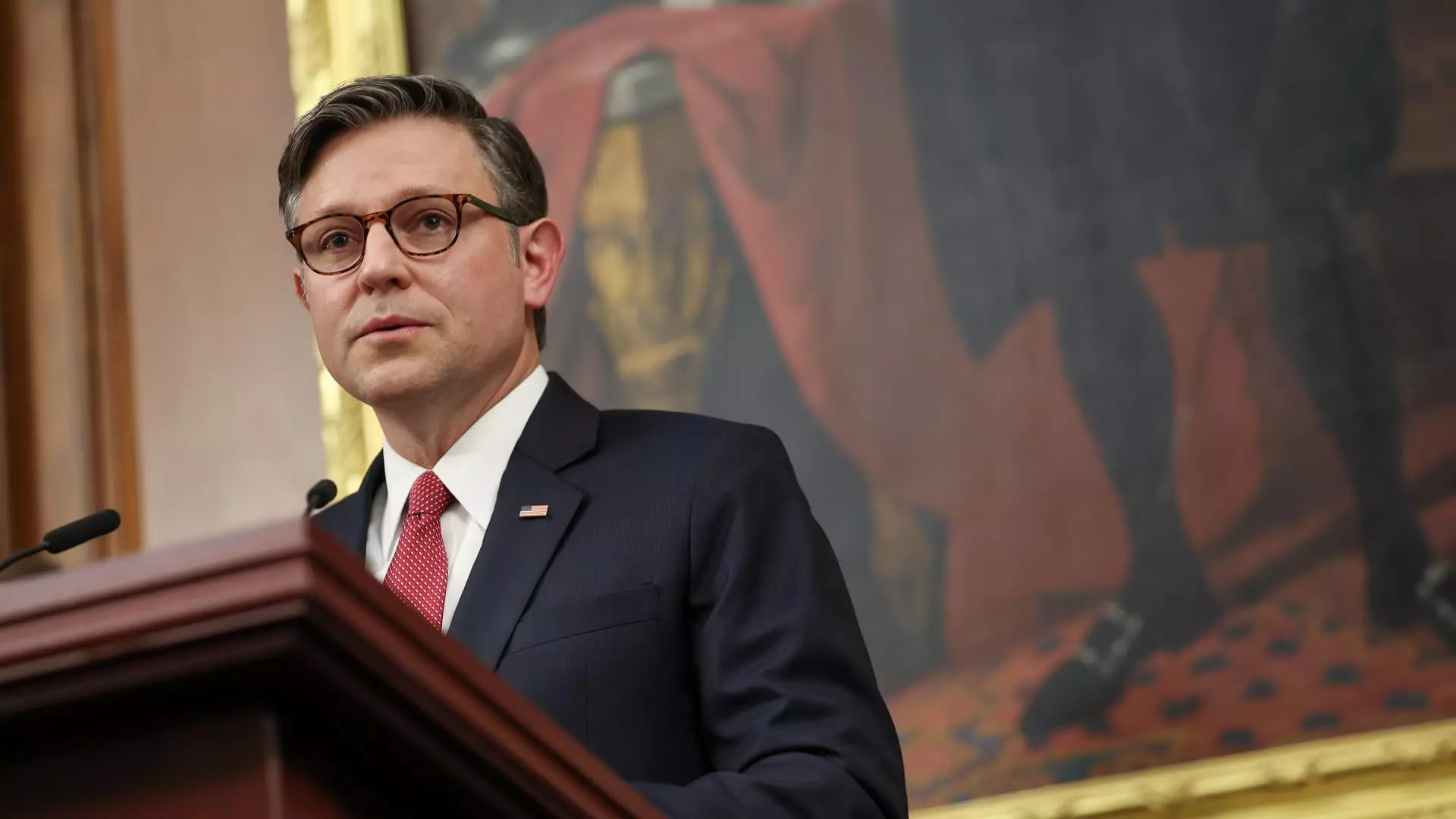The ongoing discourse surrounding the War Powers Act reveals a troubling trend in American politics—a blatant struggle for power and authority that upends the very principles of our democracy. House Speaker Mike Johnson’s assertion that the War Powers Act of 1973 is unconstitutional is less about a constitutional debate and more about a desperate power grab that undermines the legislative branch’s essential role in matters of war and peace. This belligerent stance not only emboldens an executive that already wields unprecedented authority but also paves the way for potential abuses of power that could have dire consequences for both our nation and the world at large.
Johnson argues that President Trump’s recent military actions in Iran fall well within his rights under Article II of the Constitution. Yet this perspective disregards the historical context and innate checks and balances designed to prevent unilateral military action. While it is true that the Constitution designates the president as the commander in chief, it equally empowers Congress with the exclusive authority to declare war. By failing to recognize this balance, Johnson risks fostering an atmosphere where presidents might engage in military actions unencumbered by legislative oversight, a dangerous proposition that situates democratic principles at the precipice of autocracy.
Constitutional Ignorance or Willful Neglect?
What is even more alarming is the troubling reality that Congress has essentially abdicated its responsibility to declare war for decades. The last formal declaration came during World War II, leading to a culture of complacency that relies on executive actions without congressional approval. Johnson, alongside previous leaders, effectively champions this status quo, advocating for a presidency unshackled by the legislative arm of government. The fragmented nature of our political landscape means that the Legislative Branch often sidesteps its duty, allowing the executive branch to take the lead in deciding military interventions and crises.
By citing the War Powers Resolution as unconstitutional, Johnson lends credence to a narrative that shortchanges the foundational elements of the republic. It raises serious questions regarding his commitment to democracy. Is it ignorance, or is it a willful disregard for the principles that govern our nation? The framers of the Constitution foresaw the potential for a powerful executive, establishing rigorous checks to prevent overreach. However, as Johnson and others seem keen to overlook, the War Powers Resolution was crafted precisely to rein in presidential authority over military actions, ensuring there is a measure of accountability.
The Political Theater of Resolution Proposals
In a curious twist of fate, Republican Rep. Thomas Massie and Democratic Rep. Ro Khanna are pushing a War Powers resolution aimed at restricting unauthorized hostilities in Iran, exhibiting a rare moment of bipartisanship. With more than a dozen Democratic co-sponsors and a similar proposal in the Senate led by Sen. Tim Kaine, their attempt to formally rein in presidential overreach deserves greater attention than it’s receiving. Yet Johnson’s dismissive stance not only reflects a lack of respect for this bipartisan initiative but also showcases how power politics often drown out the essential dialogue necessary for our democracy.
Massie’s decision not to advance the resolution if a ceasefire holds speaks volumes about the contingent nature of political agendas. This transactional approach to governance signals a deeper ailment; bipartisanship should not hinge upon the whims of geopolitical situations. Such attitudes reinforce the idea that legislative safety is a secondary consideration when weighed against political expediency. The relentless pursuit of an agenda at the cost of conscientious governance further exacerbates the existing divide, where political posturing often takes precedence over the collective welfare of our citizens.
Reflections on Accountability
The current discourse surrounding Speaker Johnson’s assertions and the resulting legislative maneuvering underscores an undeniable truth: our democracy hinges on accountability. Unfortunately, Johnson’s rhetoric and the willingness of some leaders to bypass rigorous debate and scrutiny reduce critical dialogues to mere political posturing. The lack of action to redefine the limits of presidential authority is more than a constitutional quibble; it is a moral failing that undermines the very fabric of American democracy.
In this era, where conflicts can erupt with alarming speed and global ramifications abound, we stand at a crossroads. The choices we make today will shape the legacy we leave behind. Those entrusted with power must adhere to the principles that govern us and resist the allure of unchecked authority. The call for a restored balance between Congress and the presidency is not just an ideal; it is a necessity if we are to safeguard our democratic values and ensure that future military actions reflect comprehensive deliberation rather than impulsive decisions. The stakes have never been higher.


Leave a Reply